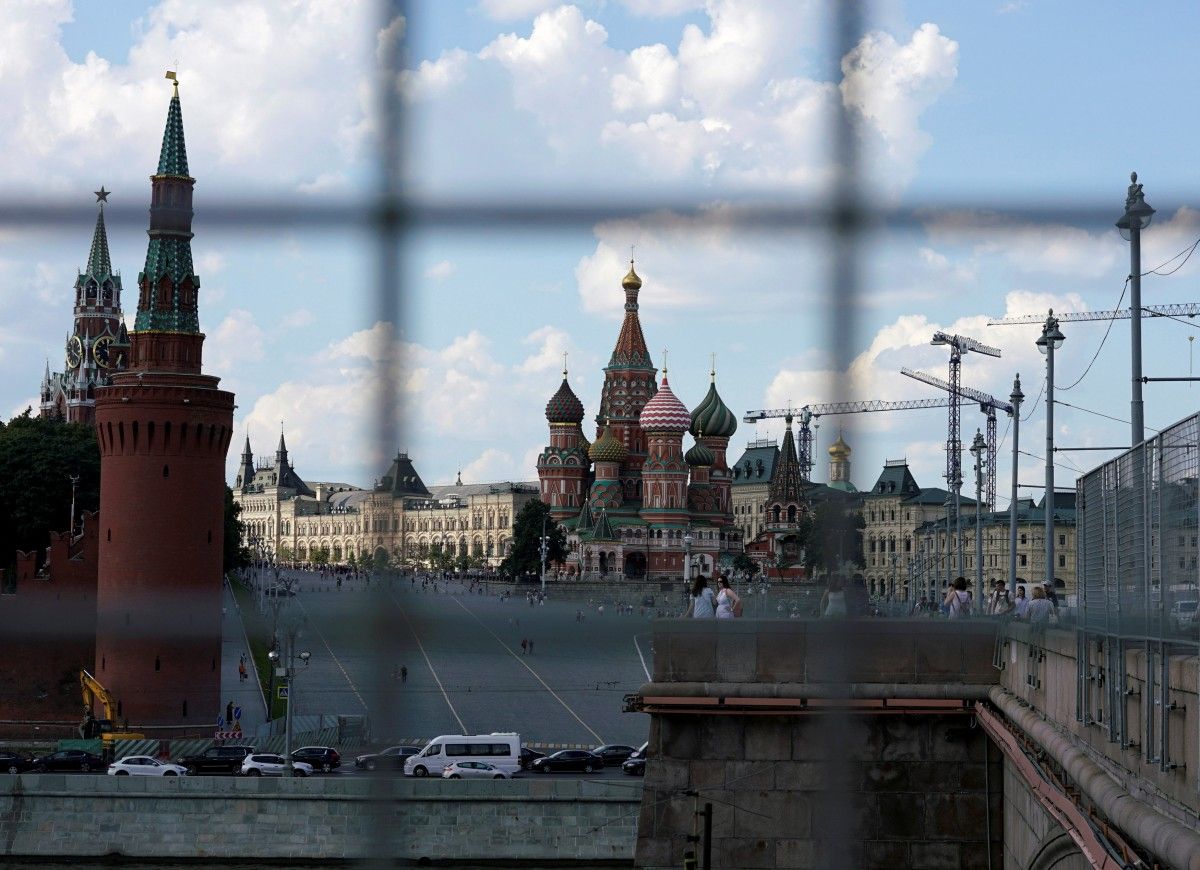
In previous joint investigations with Der Spiegel and The Insider, Bellingcat identified the killer of a Georgian-Chechen asylum seeker in Berlin, Zelimkhan Khangoshvili, as Vadim Krasikov, a 54 year old Russian linked to at least two contract hits in Russia.
Using metadata from Krasikov's telephone communications prior to the murder, journalists determined that the Berlin hit job was planned and supervised by senior members of FSB's secretive Spetsnaz division Vympel, tasked with overseas subversion and special operations, Bellingcat reports.
Retracing Krasikov’s movements in Moscow in the weeks before his trip to Berlin, the probe established that he received extensive pre-mission training at FSB's Spetznaz training base outside Moscow, and repeatedly visited FSB's anti-terrorist headquarters, leaving little doubt that the Berlin assassination was mandated by Russia's main intelligence agency.
In the meantime, Bellingcat has discovered additional evidence pointing to the likely role of accomplices assisting in the plotting and the getaway plans following the assassination in Berlin.
On April 14, 2020, Ukraine's security service (SBU) announced the arrest of Lt. General Valeriy Shaytanov, deputy chief of their own anti-terrorist division. In a public statement, the SBU alleged the general had been recruited before the start of the 2014 war by an FSB operative, Colonel Igor Egorov, a highly decorated KGB, and later FSB, officer who had received a medal for his role in annexing Crimea in 2014.
The SBU's announcement also included audio recordings of conversations between Shaytanov and Egorov, and a third unnamed person whom they appeared to be grooming for a contract killing of a Chechen national living in Kyiv.
The SBU also published footage from apparent video surveillance of the latest meet-up between Col. Egorov and the would-be contract killer, which the SBU says took place in Hamburg, Germany, in February of this year.
Bellingcat and The Insider had previously identified – but had not yet publicly disclosed – Col. Igor Anatolyevich Egorov as a senior officer from FSB's elite Spetznaz force known as Department V, the successor to the KGB's elite subversion and special operations unit Vympel. In previous investigations into the role of GRU undercover officers in supervising and aiding Russian and Russia-controlled forces in Eastern Ukraine, journalists had stumbled upon this person, who in 2014 and 2015 had traveled extensively – under two different identities – as Igor Egorov (his real name), and as Igor Semyonov (his cover name), between Moscow and the three control centers for Russia's military operations in Donbas: Rostov, Simferopol, and Krasnodar.
In May 2018, Bellingcat identified and publicly disclosed the identity of one of the key Russian military supervisors in Donbas, who had operated under call sign "Orion”. This operative was Oleg Ivannikov, a colonel from Russian military intelligence (GRU). An FSB counterpart to GRU's "Orion" based in Donbass in mid-2014 went by the nom-de-guerre “Elbrus” (the FSB and the GRU are known to be in long-standing cold war for funding, influence and "new territory").
Bellingcat's early hypothesis that Col. Egorov is in fact "Elbrus" received a strong boost when in November 2019, a number of intercepted phone calls was published from the days just before the downing of flight MH17, which contained conversations between Donbas militants. In one conversation intercepted the day before the MH17 downing, "Elbrus" was described as an officer from FSB’s Vympel Spetsnaz, named Igor, who had a speech impediment, which can also be identified in the audio recordings of Egorov published by the SBU.
Also, it became clear that Elbrus had been brought in from Russia with a decision-making role above local commanders in the military chain of command. Given that his arrival was just prior to the tragic shoot-down of MH17 by a Russian BUK missile, such role makes Elbrus a person of interest in the MH17 investigation, which would explain in part the publication of the intercepts by the JIT.
Despite the fact that Col. Igor Egorov played a crucial role in the annexation of Crimea and in Russia's incursion into Eastern Ukraine – both of which are unlawful under international law – he remained unbothered by Western law enforcement or intelligence services, having crisscrossed the European Union, and traveled to the Middle East and Asia on almost a monthly basis.
There is uncertainty as to the degree of coordination between the Ukrainian security service and European law enforcement or intelligence services in relation to the SBU sting operation. Ukrainian sources interviewed by investigative journalists on condition of anonymity have claimed that Ukraine had requested Egorov’s arrest during his latest visit to Hamburg but that Germany declined to detain him. Both Ukrainian and German sources claim that the sting operation were conducted jointly, and the video surveillance was implemented by a German intelligence service.
The diverging opinions emerge on the subject of why Egorov was not arrested. One theory proffered by a German law-enforcement source is that there were plans to arrest the FSB colonel during his next trip, when he was expected to be procuring the cash for the Ukrainian hit job. This trip did not materialize, however, due to the impending coronavirus crisis and restrictions on movements.

